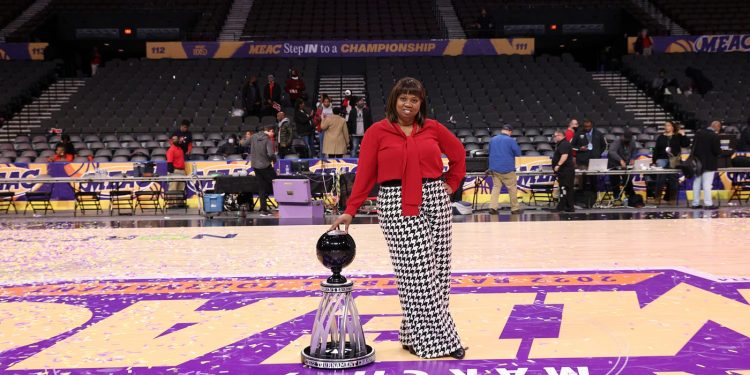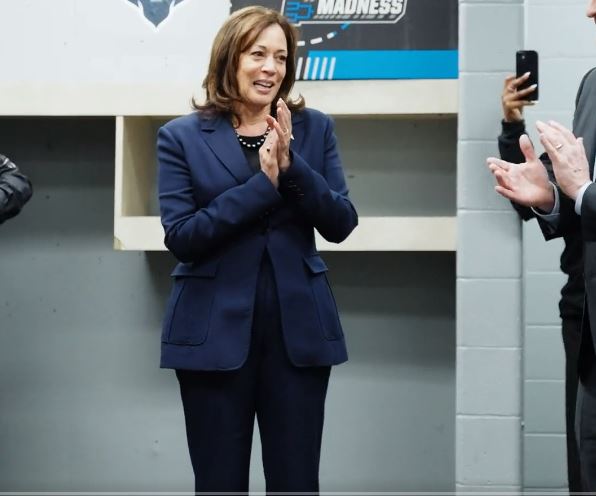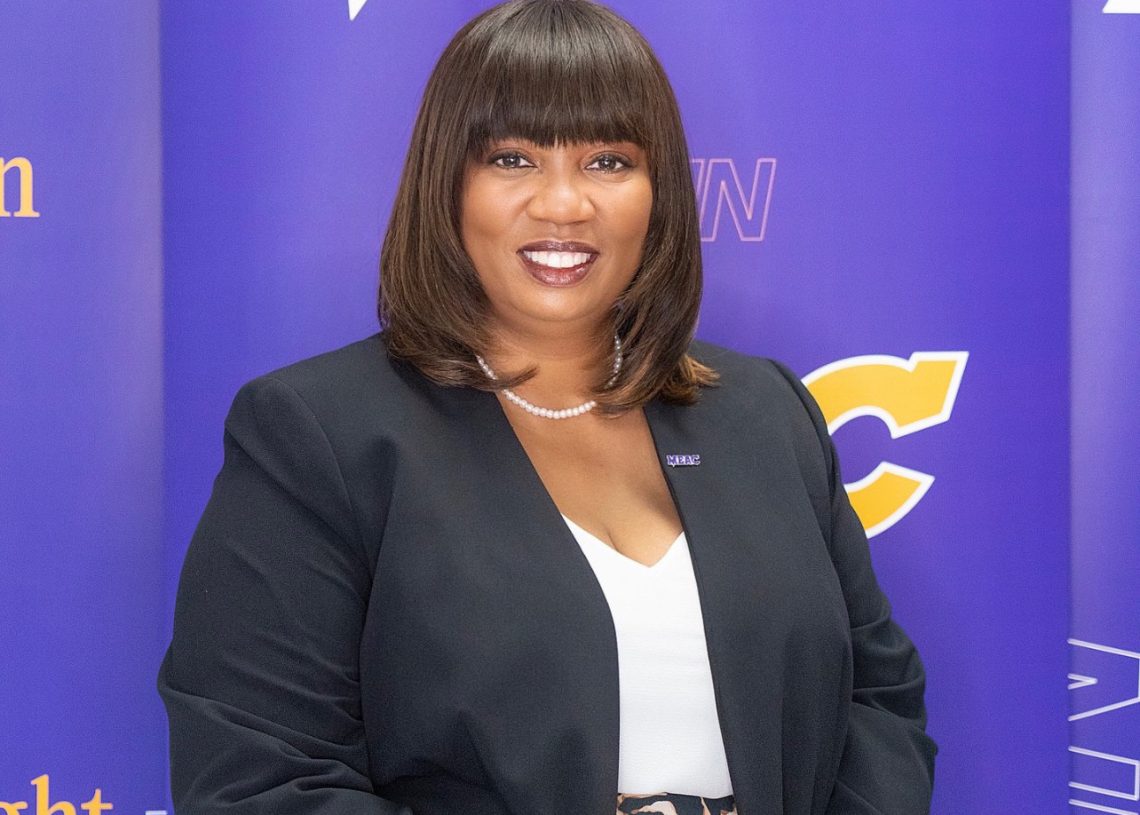Entering her fourth season as commissioner of the Mid-Eastern Athletic Conference, Sonja Stills is excited about everything that is happening.
That includes enthusiasm over women like herself taking on a greater role in sports, on and off the field.
As fall sports get underway this week, Stills spoke with HBCU Sports about the MEAC’s future plans, NIL and the possibility of an alumna of a MEAC institution becoming the leader of the free world.
HBCU Sports: There’s a lot to like about the conference heading into this season. The Celebration Bowl is going to be great. There’s cross country and volleyball. What are you most excited about heading into this new school year?
Commissioner Stills: I’m excited about all of it. Getting our student-athletes out there to play, ready to get the year started. So whatever happens, I’m there for it.
HBCU Sports: Last year was one of those star-crossed years where so much went right for the conference. You had Howard winning the MEAC in a a great basketball tournament. If you had to look back on the 2023-24 year, what’s the first word or a summary that comes to mind?
Commissioner Stills: It was a tremendous year for the conference and for our visibility. We had two football teams in the postseason with Howard and North Carolina Central, so I hope that we continue moving forward with that same energy into the 24-25 season.
HBCU Sports: To be football-specific, there’s a lot being made about the Celebration Bowl being moved up a week because of the FBS playoffs. There are only six football-playing members in the MEAC. Do you think there will be a time when a conference championship game will be played?
Commissioner Stills: That would be up to the membership. That is something that has been a part of our strategic plan in the past, but certainly, for us to get to that type of structure, we would have to add more football-playing institutions. I think we’re a little far off seeing that for our conference, but we are very content with the way our structure is moving at this point.
HBCU Sports: So expansion is something the league is thinking about, but it’s a far way up the line?
Commissioner Stills: Of course, expansion is always a part of our strategic long-range plan, but we want to be very methodical and careful in vetting the right institution to align with us athletically and academically. As we look forward, we’re not in a hurry because, first and foremost, we want to strengthen the foundation of our Elite Eight. As we do that, then we can invite other institutions that align with us.

HBCU Sports: As far as that strategic plan goes, how close do you think the MEAC is to adding women’s flag football as a sport?
Commissioner Stills: I think we’re close. The institutions are very interested in that. Some of our institutions have club leagues on their campuses, so it would be a very easy transition. Right now, looking at the resources to add women’s flag football and looking at the Title IX implications for the institutions, so there’s a little more vetting they need to see to make sure they’re bringing the right opportunity to campus. I see flag football being one of those opportunities for Black women. Hopefully, in 2028, in the Olympics in Los Angeles, we have HBCU representation on those teams.
HBCU Sports: Speaking of representation, women’s sports have reached a level of respect and popularity that it hasn’t seen before. As a woman leading an NCAA Division I conference, how exciting is it to be a part of this growth? There’s you, there’s Jacqie McWilliams in the CIAA, and athletic directors like Alecia Shields Gadson at Delaware State.
Commissioner Stills: It’s surreal. I never could have imagined as a little girl seeing what I’m seeing now. Coming up in this industry, it was an old boys’ network and now seeing how women have spread their wings in this league, in this landscape. We still have a ways to go, but certainly, having a lot of these first is amazing. Even being the first female commissioner of the MEAC, I don’t want to be the last. I hope we have more opportunities in leadership for women of color.
HBCU Sports: As far as leadership goes, a MEAC alumna is now the Democratic nominee for President of the United States. Talk about that piece of history that Kamala Harris is embarking on. Just to see her accept that nomination, what does it mean for young women of color to see someone like her represent on such an important stage?
Commissioner Stills: Just looking at the news and seeing the DNC and seeing Kamala Harris do her thing makes it attainable for these young ladies. They’re growing up seeing this and saying, ‘Hey, I can make it.’ No matter what they want to do, it’s attainable. Seeing these women in these types of roles is going to push us even further. I can’t wait to see Vice-President Kamala Harris ascend to her throne very soon. It’s amazing to be in this era to see women making moves today.

HBCU Sports: Lastly, it’s an interesting year for college athletics now that athletes are allowed to make money thanks to NIL. What do you hope the MEAC and the other HBCU conferences should do to make sure everybody’s happy, that the kids are able to make money off of name, image, and likeness but, at the same time, not sacrifice the integrity and reputations of your institutions?
Commissioner Stills: We do support student-athletes being able to profit off of their name, image and likeness, but when you look at HBCUs, we were founded on graduating the underserved population. We need to stick with what our foundation is, education. All of our student-athletes of color who are going to HBCUs are going to get a great education. If they go pro, then great, but they still have a great education to fall back on after their career is over. Our focus is sticking with what we know. We have great academic institutions, great culture, there’s nothing like the family that we have. Students will come. That’s our focus: graduating student-athletes.







